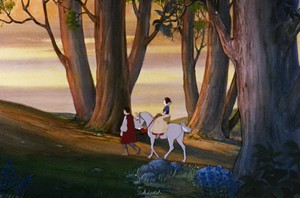Forum old
Terrence Malick has never made a film I didn’t like, so it is unsurprising that his most recent work, The Tree of Life (2011), struck my fancy. It has almost […]

The century-long scholarly and political debate about the costs and benefits of violent entertainments seems to have run aground, once again, on the shoals of strong gut feelings. Some people (including many humanities scholars) enjoy or appreciate violent entertainments, ranging from fairy tales to video games, and therefore suppose that they are in some respects intrinsically worthwhile. Other people (including many media effects researchers) find the new interactive and extremely graphic forms of virtual violence particularly disturbing and distasteful and therefore suppose that they are intrinsically harmful. The truth is that video games and other violent entertainments have both positive and negative effects. Scholars and scientists need to do a much better job of discerning and explaining the difference if they wish to give good guidance to parents and policy makers.



